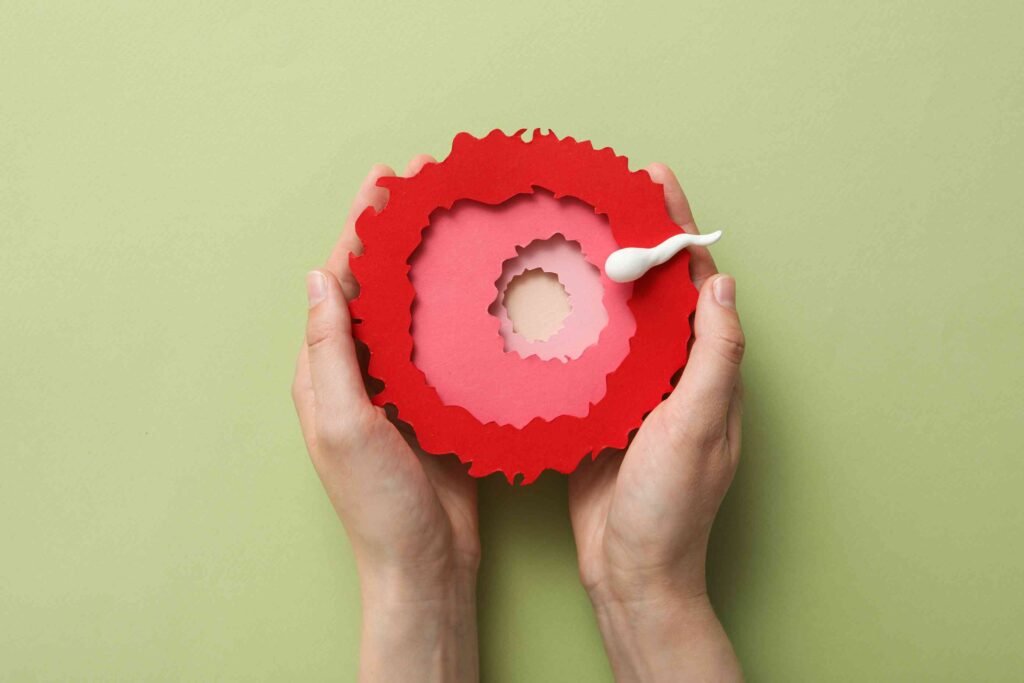Understanding Your Ovulation Cycle
Your ovulation cycle is one of the most critical aspects of your reproductive health. It’s a natural process that happens each month, preparing your body for pregnancy. Whether you’re trying to conceive, avoiding pregnancy, or just curious about how your body works, understanding your ovulation cycle is essential.
In this blog, we’ll break down the science of ovulation in an easy-to-understand way. From what it is, how it works, and the signs your body gives you, to tips on tracking it effectively, we’ll cover everything you need to know about your ovulation cycle. Let’s dive in!
What is the Ovulation Cycle?
The ovulation cycle refers to the part of your menstrual cycle when a mature egg is released from the ovary, making its journey down the fallopian tube. This process typically occurs around the midpoint of your cycle and is when you’re most fertile. If sperm is present during this time, fertilization can occur, leading to pregnancy. If the egg isn’t fertilized, it will dissolve, and your body will shed the uterine lining, resulting in menstruation.
The menstrual cycle is usually about 28 days long, but this can vary from person to person. Ovulation typically occurs about 14 days before your next period, regardless of the length of your cycle. So, if you have a 30-day cycle, you’re likely to ovulate around day 16. Similarly, for a shorter cycle of 26 days, ovulation may occur on day 12.
The Phases of the Ovulation Cycle
To understand ovulation better, it’s important to know the phases of the menstrual cycle, as they’re all interconnected:
1. Follicular Phase
This phase begins on the first day of your period and lasts until ovulation. During this time, the pituitary gland in your brain releases a hormone called follicle-stimulating hormone (FSH). FSH stimulates the ovaries to produce follicles, each containing an immature egg. Typically, only one follicle matures and releases an egg during ovulation.
2. Ovulation Phase
This is the star of the show! The luteinizing hormone (LH) surges, triggering the release of the mature egg from the ovary. This egg then travels down the fallopian tube, where it awaits fertilization. The ovulation phase usually lasts 12–24 hours, but the fertile window extends to about 5-7 days due to the lifespan of sperm in the female reproductive system.
3. Luteal Phase
After ovulation, the follicle that released the egg transforms into the corpus luteum, which produces progesterone to prepare the uterus for a potential pregnancy. If fertilization doesn’t occur, the corpus luteum breaks down, hormone levels drop, and the menstrual cycle restarts.

Signs of Ovulation: How to Know When You’re Ovulating
Your body provides several signals when you’re ovulating. Learning to recognize these signs can help you understand your ovulation cycle better.
1. Changes in Cervical Mucus
One of the most noticeable signs of ovulation is the change in cervical mucus. As ovulation approaches, your cervical mucus becomes clear, stretchy, and slippery—similar to the consistency of egg whites. This creates a sperm-friendly environment, making it easier for sperm to travel and fertilize the egg.
2. Basal Body Temperature (BBT) Shift
Your basal body temperature (the body’s resting temperature) rises slightly—by about 0.5 to 1 degree Fahrenheit—after ovulation due to increased progesterone levels. Tracking your BBT over several months can help identify patterns in your ovulation cycle.
3. Ovulation Pain (Mittelschmerz)
Some women experience a slight twinge or cramp on one side of the lower abdomen during ovulation. This is called mittelschmerz and occurs when the ovary releases the egg.
4. Increased Libido
You might notice a spike in your sex drive during ovulation, driven by hormonal changes. This natural boost in libido aligns with your most fertile period.
5. Changes in Cervical Position
During ovulation, the cervix becomes softer, higher, and more open. While this change can be harder to detect, some women who track their cycles check cervical position as an additional sign.
6. Positive Ovulation Predictor Kit (OPK)
OPKs detect the surge of luteinizing hormone (LH) in your urine, which happens just before ovulation. Using these kits can help pinpoint the most fertile days in your cycle.
How to Track Your Ovulation Cycle
Tracking your ovulation cycle can be helpful whether you’re trying to conceive or just want a better understanding of your body. Here are a few methods:
1. Calendar Method
Mark the first day of your period and count the days until your next period starts. Ovulation typically occurs 14 days before your next period. While this method is simple, it’s best for women with regular cycles.
2. Basal Body Temperature (BBT) Charting
Measure your BBT every morning before getting out of bed and record it on a chart or app. Look for a sustained temperature rise to identify when ovulation has occurred.

3. Ovulation Predictor Kits (OPKs)
OPKs are easy to use and highly accurate. Test your urine daily around the middle of your cycle to detect the LH surge that signals ovulation.
4. Cervical Mucus Monitoring
Observe and record changes in your cervical mucus throughout your cycle. The presence of clear, stretchy mucus indicates your fertile window.
5. Tracking Apps
Several apps, such as Clue, Flo, and Ovia, help you track your menstrual and ovulation cycles by analyzing your data and predicting fertile days.
Why Understanding Your Ovulation Cycle Matters
Knowing your ovulation cycle is essential for various reasons:
1. Conception
Understanding your fertile window helps you time intercourse to maximize your chances of getting pregnant. Studies show that the 5 days leading up to ovulation and the day of ovulation itself are the most fertile.

2. Contraception
If you’re not trying to conceive, knowing when you ovulate can help you avoid unprotected sex during your fertile window.
3. Identifying Irregularities
Tracking your ovulation cycle can reveal irregularities, such as anovulation (when ovulation doesn’t occur). These insights can prompt you to seek medical advice if needed.
4. Health Awareness
Your ovulation cycle reflects your overall health. Irregular or absent ovulation may indicate conditions like polycystic ovary syndrome (PCOS), thyroid disorders, or other hormonal imbalances.
Common Myths About the Ovulation Cycle
When it comes to ovulation, there’s no shortage of myths. Let’s debunk a few:
Myth 1: You Can Ovulate More Than Once a Month
Truth: While multiple eggs can be released during a single ovulation phase, it’s rare to ovulate more than once per cycle.
Myth 2: You Can Get Pregnant Any Day of the Month
Truth: While sperm can survive for several days in the reproductive tract, pregnancy is most likely to occur during the fertile window.
Myth 3: Ovulation Always Happens on Day 14
Truth: Ovulation varies depending on the length of your cycle. While day 14 is a common estimate, it’s not accurate for everyone.
Factors That Can Affect Your Ovulation Cycle
Several factors can influence your ovulation cycle:
- Stress: High stress levels can delay or suppress ovulation.
- Weight Fluctuations: Being underweight or overweight can disrupt hormonal balance and affect ovulation.
- Age: Fertility declines with age, particularly after 35, due to reduced egg quality and quantity.
- Health Conditions: Disorders like PCOS, endometriosis, or thyroid issues can impact ovulation.

When to See a Doctor
If you’re trying to conceive but haven’t been successful after a year (or six months if you’re over 35), consider consulting a healthcare provider. Irregular cycles, lack of ovulation, or other symptoms may require evaluation and treatment.
Final Thoughts
Your ovulation cycle is more than just a biological process—it’s a window into your overall health and fertility. By understanding how it works, recognizing the signs of ovulation, and tracking your cycle, you can take control of your reproductive health.
Whether you’re planning to start a family or simply want to be more in tune with your body, knowing your ovulation cycle is empowering. So, start paying attention to those subtle cues your body provides and embrace the opportunity to learn more about yourself



